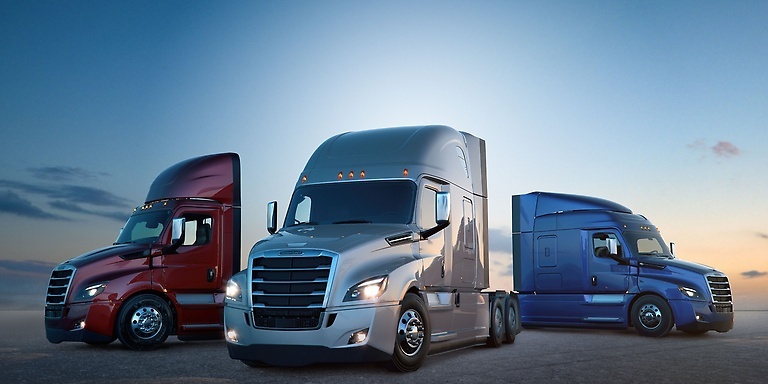3/21/24
Day Cab vs. Sleeper
In America’s trucking industry, trucks come in several variations. Two of the most common variations of trucks are sleeper trucks and day cab trucks. While at first glance it may seem obvious what the difference between these two truck variations is, there are more aspects of each truck that may fit your business’s needs better.
Truck Sales

Understanding Sleeper Trucks and Day Cabs
In the growing world of transportation and logistics, choosing the correct vehicles for your fleet can greatly impact the success and efficiency of your operations. Among the numerous styles and builds of commercial trucks, sleeper trucks and day cab trucks stand out due to their unique characteristics. These trucks offer drivers and businesses distinctive advantages and qualities and knowing these differences can be critical in optimizing your business moving forward.
Sleeper Trucks
At the core of their design, sleeper trucks differ from their trucking counterparts due to a pivotal distinct difference, the inclusion of a sleeper berth. Pioneered in the 1950s from overnight trains, and built upon through legislative acts, manufacturers created this feature to combat the fatigue of extended driving sessions. Beyond its noticeable difference, sleeper trucks offer a host numerous advantages including:
- Comfort: Featuring a sleeper berth in the back of the driver cab, these trucks allow drivers a comfortable place to sleep and relax, reducing fatigue and enhancing morale.
- Driving Efficiency: Optimized for longer routes, sleepers offer drivers and businesses cost efficiency over elongated trips, optimizing fuel and transportation expenses.
- Amenities: These trucks often come equipped with enhanced communication, user facilities, and GPS systems, ensuring safer and more efficient transportation.
Despite these positive features, sleeper trucks do hold drawbacks, including increased cost and maintenance, downsized fuel efficiency, and reduced maneuverability in urban settings.
Day Cab Trucks
In contrast to their sleeper counterparts, day cabs are designed for shorter, more meticulous journeys, making them the ideal choice for urban settings and shorter distance routes. Some key advantages of this truck type include:
- Fuel Efficiency: Due to their lighter chassis and build configurations, day cabs shine with their superior fuel economy, suiting them perfectly for urban settings and shorter trips.
- Maneuverability: Compared to the sleeper, the day cab's compact design allows for easier navigation through narrower roads, ensuring a seamless driving experience in tighter situations.
- Cargo Capability: Despite their lighter chassis build, these trucks are built to accommodate and excel in the transport of heavier loads, maximizing load quantity and capacity.
While day cabs offer drivers a variety of key advantages through their use, they do still hold distinct flaws. With the absence of a sleeping quarter, drivers will need to take breaks more frequently, increasing transportation time and possible business expenses as well.
Choosing The Right Fit For Your Business
In the end, choosing the right type of truck boils down to you and your business’s specific needs. If you are looking for trucks that are best suited for shorter trips, increased haul capacity, and can maneuver in urban areas, the day cab is best for you. Conversely, if you rely more on longer hauls and transportation and value driver comfort, the sleeper truck will be the best option for you. It is important to understand the key differences between these truck types to ensure you are making an informed decision that best aligns with your objectives.
Make sure to stop by one of our various locations to check out our comprehensive selection of parts, services, and inventory to get you back on the road!
While at first glance it may seem obvious what the difference between these two truck variations is, there are more aspects of each truck that may fit your business’s needs better.










